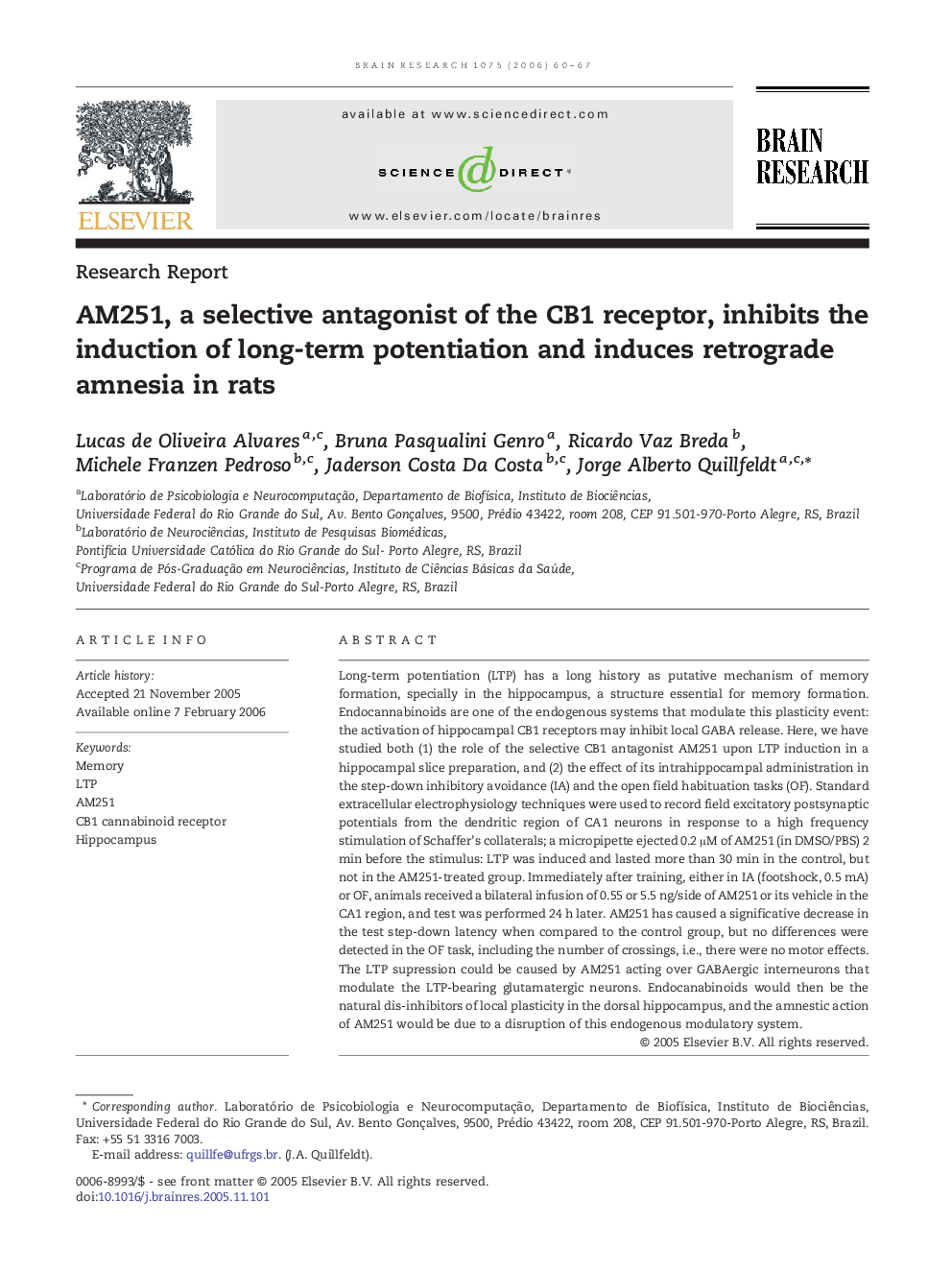| Article ID | Journal | Published Year | Pages | File Type |
|---|---|---|---|---|
| 4333288 | Brain Research | 2006 | 8 Pages |
Long-term potentiation (LTP) has a long history as putative mechanism of memory formation, specially in the hippocampus, a structure essential for memory formation. Endocannabinoids are one of the endogenous systems that modulate this plasticity event: the activation of hippocampal CB1 receptors may inhibit local GABA release. Here, we have studied both (1) the role of the selective CB1 antagonist AM251 upon LTP induction in a hippocampal slice preparation, and (2) the effect of its intrahippocampal administration in the step-down inhibitory avoidance (IA) and the open field habituation tasks (OF). Standard extracellular electrophysiology techniques were used to record field excitatory postsynaptic potentials from the dendritic region of CA1 neurons in response to a high frequency stimulation of Schaffer's collaterals; a micropipette ejected 0.2 μM of AM251 (in DMSO/PBS) 2 min before the stimulus: LTP was induced and lasted more than 30 min in the control, but not in the AM251-treated group. Immediately after training, either in IA (footshock, 0.5 mA) or OF, animals received a bilateral infusion of 0.55 or 5.5 ng/side of AM251 or its vehicle in the CA1 region, and test was performed 24 h later. AM251 has caused a significative decrease in the test step-down latency when compared to the control group, but no differences were detected in the OF task, including the number of crossings, i.e., there were no motor effects. The LTP supression could be caused by AM251 acting over GABAergic interneurons that modulate the LTP-bearing glutamatergic neurons. Endocanabinoids would then be the natural dis-inhibitors of local plasticity in the dorsal hippocampus, and the amnestic action of AM251 would be due to a disruption of this endogenous modulatory system.
